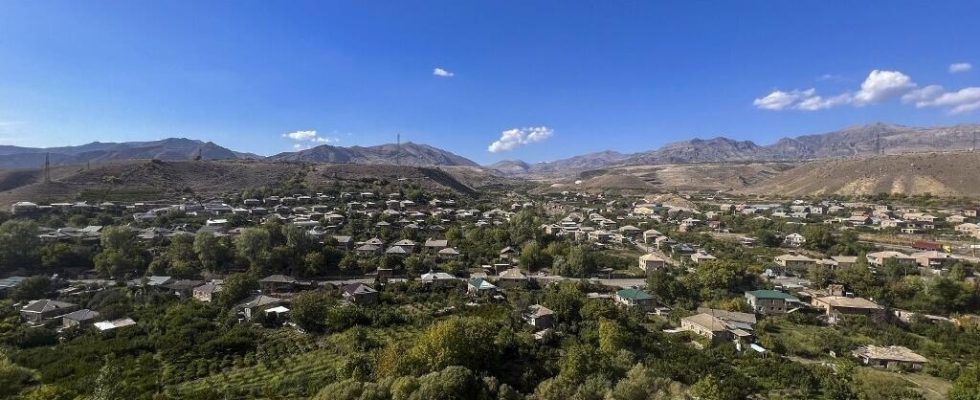Azerbaijan regained – at the end of September – total control over its secessionist region of Nagorno-Karabakh, three decades after losing it. The 100,000 Armenians in the enclave immediately fled the region, taking refuge in neighboring Armenia. Building on this historic victory, Azerbaijan reminded Yerevan of its commitment to opening a road to Nakhichevan. And this has raised fears of a new crisis in the region, even a war.
2 mins
From our correspondent in the region, Régis Genté
Armenia was committed to opening a road to Nakhichevan, a very problematic road, since it is supposed to be opened for the benefit of the two countries with which Armenia is in conflict, Azerbaijan and Turkey.
Nakhichevan, an enclave of 15 square kilometers
This obligation arose from the signing by Armenian Prime Minister Nikol Pashinian of the declaration of cessation of hostilities in the fall 2020 war, negotiated by Russian President Vladimir Putin. In its article 9, this declaration provided that Armenia, loser of this war for Nagorno-Karabakh, should allow Azerbaijan to have a direct land route connecting it to its province of Nakhitchevan, landlocked between Armenia, Turkey and Iran.
Read alsoAgreement between Yerevan and Baku on a connection between Azerbaijan and the Nakhichevan enclave in Armenia
The 2020 declaration was largely ignored by Azerbaijan which took back Nagorno-Karabakh, against its letter and spirit. We can therefore think that the text is obsolete. But it was above all Iran’s surprise decision which put an end to speculation, by proposing that the land connection between Azerbaijan and Nakhchivan pass through its territory. And this was accepted by the Presidents of Azerbaijan and Turkey, Ilham Aliev and Recep Tayyip Erdogan. Against a backdrop, it seems, of international pressure to defend Armenian territorial integrity.
Tehran’s fears
Iran wants to avoid a new coup by Azerbaijan against Armenia. Tehran expressed its deep concern, then offered to send observers to prevent an armed attack. The Islamic Republic prefers a route that it controls rather than a route passing through Armenia, so as not to risk losing its border with the latter and seeing Azerbaijan be its main neighbor in the North-West. Tehran and Baku have in fact historically tense relations, Azerbaijan having, via its nationalist fringes, territorial claims on the north of Iran, which is inhabited by a Turkish-speaking Azeri population, which represents around 25% of the population. Iranian population.
Read alsoIran warns against any ‘geopolitical change’ in the Caucasus
